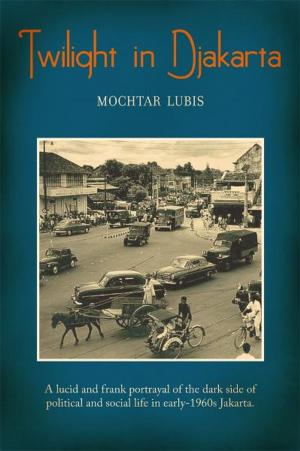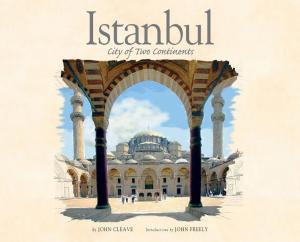London Sketchbook: A City Observed
Nonfiction, Travel, Europe, Great Britain, Art & Architecture, General Art| Author: | Graham Byfield, Marcus Binney | ISBN: | 9789814385176 |
| Publisher: | Editions Didier Millet | Publication: | February 10, 2012 |
| Imprint: | Language: | English |
| Author: | Graham Byfield, Marcus Binney |
| ISBN: | 9789814385176 |
| Publisher: | Editions Didier Millet |
| Publication: | February 10, 2012 |
| Imprint: | |
| Language: | English |
The best way of discovering London is on foot or from the top of a bus. No other large cuty is more rewarding to wander around, with a wealth of interesting things to see, both grand and intimate in scale. Watercolour painter Graham Byfield set out to capture the essence of the place, and his impressions are recorded in the London Sketchbook.
Britain's capital is varied and cosmopolitan. It has no formally planned centre; each area has its own particular style and atmosphere. Central London is the setting for parliament, royal palaces, formal squares and grand hotels. The City is the financial district, but it is also rich in architecture, including Sir Christopher Wren's greatest work. Much was destroyed here in the Second World War; but the City has seen a flowering of daring and innovtive modern architecture, contrastign with the sober mass of the Tower of London, parts of it nearly a thousand years old. Byfield savours the village-like atmosphere of Hampstead and Islington to the north, and the 19th-century residential and museum areas of the west, from Chelsea and Kensington up to Notting Hill and Bayswater. For many people, including many Londoners, much that lies soouth of the River Thames is undiscovered territory, but the London Sketchbook shows not only the formal splendours of Greenwich, but also the terraced houses of Stockwell and Battersea, and the adaptation of great industrial buildings such as the Bankside Power Station, now the Tate Modern art gallery.
The sketches are accompanied by notes handwritten by the artist. There is an introduction on London, its history and its buildings by the architectural writer and conservationist Marcus Binney, who has also contributed a Gazetteer with more detailed information on the buildings shown in this book.
The best way of discovering London is on foot or from the top of a bus. No other large cuty is more rewarding to wander around, with a wealth of interesting things to see, both grand and intimate in scale. Watercolour painter Graham Byfield set out to capture the essence of the place, and his impressions are recorded in the London Sketchbook.
Britain's capital is varied and cosmopolitan. It has no formally planned centre; each area has its own particular style and atmosphere. Central London is the setting for parliament, royal palaces, formal squares and grand hotels. The City is the financial district, but it is also rich in architecture, including Sir Christopher Wren's greatest work. Much was destroyed here in the Second World War; but the City has seen a flowering of daring and innovtive modern architecture, contrastign with the sober mass of the Tower of London, parts of it nearly a thousand years old. Byfield savours the village-like atmosphere of Hampstead and Islington to the north, and the 19th-century residential and museum areas of the west, from Chelsea and Kensington up to Notting Hill and Bayswater. For many people, including many Londoners, much that lies soouth of the River Thames is undiscovered territory, but the London Sketchbook shows not only the formal splendours of Greenwich, but also the terraced houses of Stockwell and Battersea, and the adaptation of great industrial buildings such as the Bankside Power Station, now the Tate Modern art gallery.
The sketches are accompanied by notes handwritten by the artist. There is an introduction on London, its history and its buildings by the architectural writer and conservationist Marcus Binney, who has also contributed a Gazetteer with more detailed information on the buildings shown in this book.















